A story about Hansel and Gretel address some of the primal human fear about abandonment, cannibalism and supernatural powers. Due to its gore, it is by
no means the best fairy tale to introduce your kid into the magic of fairy lore. On the other hand, time and hundreds of adaptations proved it's among the most popular ones. In recent years, filmmakers used it's basic plot to create a whole series of highly successful movies for grown-ups.
Yes, horror is a genre with root in folklore. What is so appealing in Hansel and Gretel? Why Bruno Bettelheim, controversial, yet extremely important figure in fairy tale theory pronounced it as an ultimate tale for kids ever? What role had brother Grimm in developing of its popularity? Let's explore...
... top 10 points about Hansel and Gretel to think about!


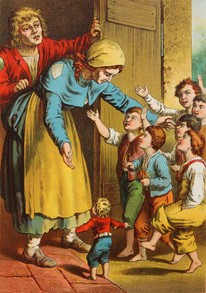
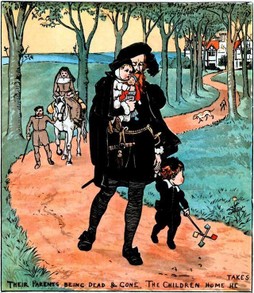
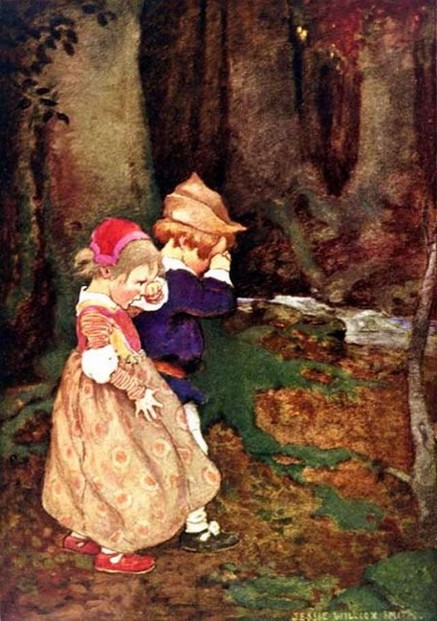
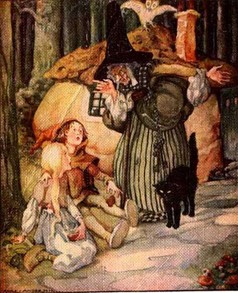
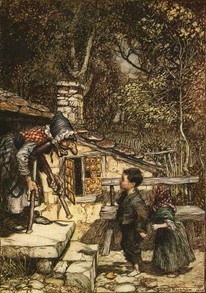


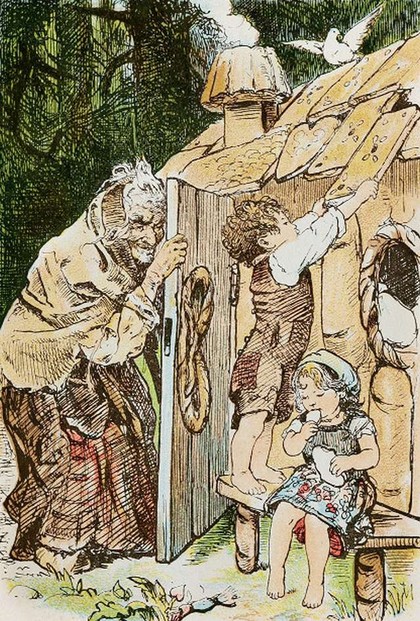

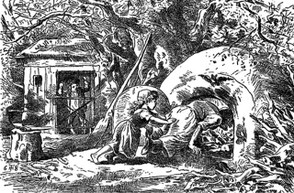
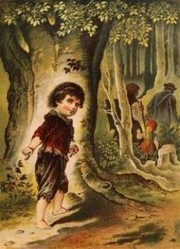

 Vintage Postcard Artists with 10 Examples of Easter Cardson 02/21/2025
Vintage Postcard Artists with 10 Examples of Easter Cardson 02/21/2025
 Valentine's Symbolson 01/23/2025
Valentine's Symbolson 01/23/2025
 Thanksgiving Symbolson 11/12/2024
Thanksgiving Symbolson 11/12/2024
 Famous Witches in Literary Historyon 10/06/2024
Famous Witches in Literary Historyon 10/06/2024

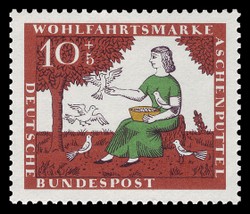
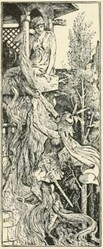
Which version of Hansel and Gretel is most appealing to you?
Seven minutes is more than enough for such a simple plot. The cartoon starts with the kids being already caught and is all about the bunny and the witch. I would say moe people liked it than not. There was some controversy about his quote 'they are all witches inside' and I think the witch later appeared in several episodes.
The 8th subheading, It inspired numerous adaptations for different media, advises us that "Bugs Bunny performed in the role of the rescuer two decades later [in 1954]."
English Wikipedia describes Bewitched bunny as 6 minutes 56 seconds long.
Did the Bugs Bunny version inspire criticism or praise?
(Just under 7 minutes seems like not much time for such a plot!)
Thank you!
Stepbrothers came to mind as a question regarding fairy tales, folklore, legends and mythology because half- and step-brothers appear in ancient Hawaiian stories. That interplay even is behind the stars that Western tradition calls the square of Pegasus and that Hawaiian tradition calls the kite of Kawelo!
Mythology is full of evil mothers, not stepmothers. I wouldn't know about stebrothers.
The fourth item under the paragraph attached to the first subheading, The story was rewritten and rewritten again, advises us that "It was only in 1840, in the fourth edition of Household Tales, when Hansel's and Gretel's mother became - a step-mother. Evil step-mother is one of signature signs of classic fairy tales."
Is there something from folk or legendary or mythological cultures that makes way for evil stepmothers and evil stepsisters?
Might there be any fairy tales with evil stepbrothers?
The most popular version presents interesting dynamics where each of the siblings acts as the protector of the other for some time. I vote for this one.
Your first fact, There's a whole family of stories similar to Hansel and Gretel!, accesses one reassuring and two unsettling versions.
The version with the responsible sister seems the least unsettling and the most reassuring.
Which one would you select?
You are right, sandyspider. That's why it's called classi, isn't it? ;)
I really don't know which one I like best. The classic is always good.
Very interesting, frankbeswick. It would be nice to compare the perception about elves, dwarfs and other fairy creatures in different parts of the world. I am sure we can find them everywhere, yet they are not the same. In your country, for instance, you have numerous heroic beings, what is in tune with the history of the UK. In our country, they are much more benevolent. We have to dig very deep to find so effective arrowheads - in time of Perun, Svarun and other Slavic mythological figures.